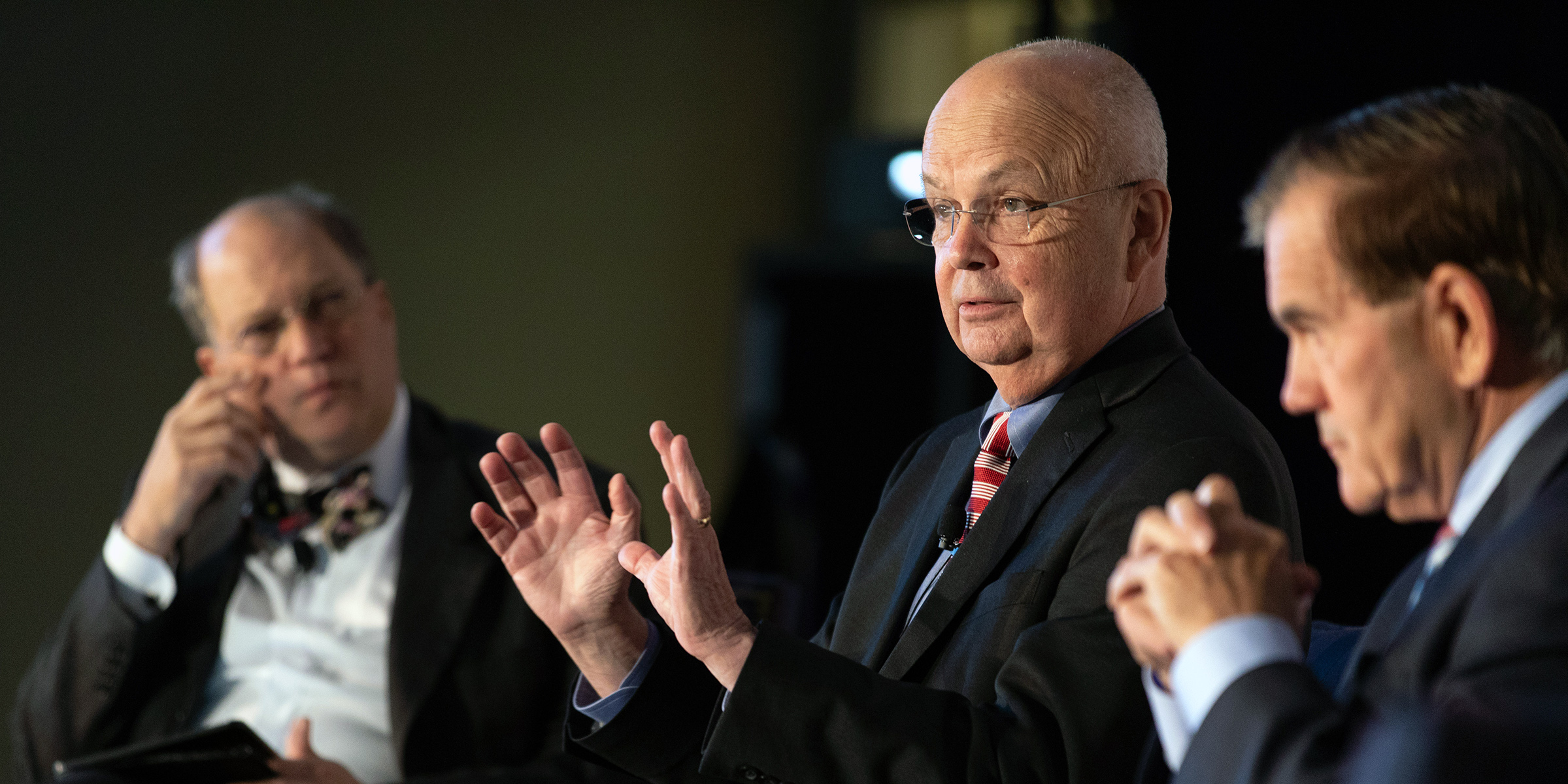100 percent opportunity
LAURA ELLSWORTH AND AARON THOMAS do not know one another: background and circumstance have placed them in two sharply different Pittsburghs.
She is partner-in-charge of law firm Jones Day’s Global Community Service Initiatives, which spearheads rule-of-law projects around the world. He is manager of Professional Development and Coaching for the Youth Support Partners unit in Allegheny County’s Department of Human Services.
She was born into opportunity — raised in Manhattan, studied dance and majored in Japanese art at Princeton. She moved to Pittsburgh in 1980, got a law degree from the University of Pittsburgh and went on to become a leading attorney in one of the world’s largest law firms.
He was born into barriers — raised in a section of Pittsburgh’s Garfield neighborhood, beset by crime and poverty. His parents were drug dealers. He was selling drugs at 12 and smoking marijuana at 14. He was in and out of the criminal justice system until a court-ordered Community-Based Supervision Program with African American professional men as mentors turned him around. Eventually he made his way to higher education and a career that includes two promotions.
Despite starkly different life experiences, Ellsworth and Thomas share several observations: they love Pittsburgh, and they are amazed that its economy is flexing new muscle and spinning out quality-of-life improvements envied by other cities. But they also worry that the wave of prosperity isn’t sustainable if 30 percent of the population now identified as treading water can’t get opportunities to participate in and benefit from the New Pittsburgh.
In their excitement about the revitalization and their concern for those left behind, Ellsworth and Thomas endorse a yearlong planning effort at The Pittsburgh Foundation that has led to the formation of a new organizing principle: 100 Percent Pittsburgh. It is now dramatically sharpening the focus of the Foundation’s grantmaking, its community convenings and its public advocacy to create more economic access points for individuals and families in the 30-percent ranks. That’s the conservative estimate from the Foundation’s own research of the percentage of residents living at or near the poverty line. Many are also African American.
Maxwell King put the issue at the center of the Foundation’s agenda upon becoming president and CEO in the summer of 2014. The 100 Percent Pittsburgh name is a double entendre. “The first meaning is that we are 100 percent behind the exciting 21st-century new urbanist vision of Pittsburgh as a rewarding place to live,” says King. “But then, as the community foundation, we are saying ‘Wait a minute — that doesn’t mean making Pittsburgh life fulfilling just for the 70 percent.’ So there’s the other part that no one can argue with: this region can’t expect to be successful for the long term unless 100 percent of the people who live here get real opportunities to participate.”
King believes, with Pittsburgh’s revitalization taking hold, that now is the best time for a comprehensive, multiyear campaign, and the community foundation — with 71 years of experience working in neighborhoods and suburbs — is best positioned to lead it.
“I could give you a pile of research and a lot of foundation-speak on what we’re doing,” he says. “Or, I could just tell you what I have heard in dozens of meetings with leaders from every sector: This is a moral imperative and we already are late facing it. We can’t have two cities — Pittsburgh Haves and Pittsburgh Have Nots. We just cannot.”
The Foundation’s senior vice president for Program and Policy, Jeanne Pearlman, who is responsible for grantmaking and public advocacy, believes that the Foundation has struck a chord and that there will be partners in the work. “The 100 Percent Pittsburgh principle that we must transform unjust systems that perpetuate poverty and work together to assure that all people have sufficient resources to thrive seems to resonate among all of our constituents.”
The idea has energized many of the region’s leaders. Mayor Bill Peduto, for example, has taken to referencing the 30 percent in most of his public remarks. What keeps him up at night, he says, is the ticking of the opportunity clock.
To that end, the Foundation has been engaging the past year in unprecedented listening and research work with one of the two groups that a 2012 Urban Institute study reports as having the greatest risk of poverty in our region — youth ages 12 to 24. The emerging agenda is guided by values governing all 100 Percent Pittsburgh work: courage, voice and equity (the last meaning that resources are provided in proportion to need — as opposed to “equality,” in which resources are divided evenly).
Next, the initiative will turn to single women with children who, according to the Urban Institute, have experienced the largest increase in poverty levels in recent years.
Attorney Ellsworth, who lives near Sewickley with her husband and 18-year-old son, applauds the values-based grantmaking. “If I could wave a wand,” she says, “values-based alternative education and job training would close the motivation gap as much as the opportunity gap.”
Youth counselor Thomas, who lives in Manchester with his wife, Tenille, and their blended family of five children, believes that delivering opportunity is only the beginning. For the young people he works with every day, the New Pittsburgh is “something to be feared. They need to feel welcome. They need to know they belong in that space.”
Original story appeared in the 2015-16 Report to the Community




